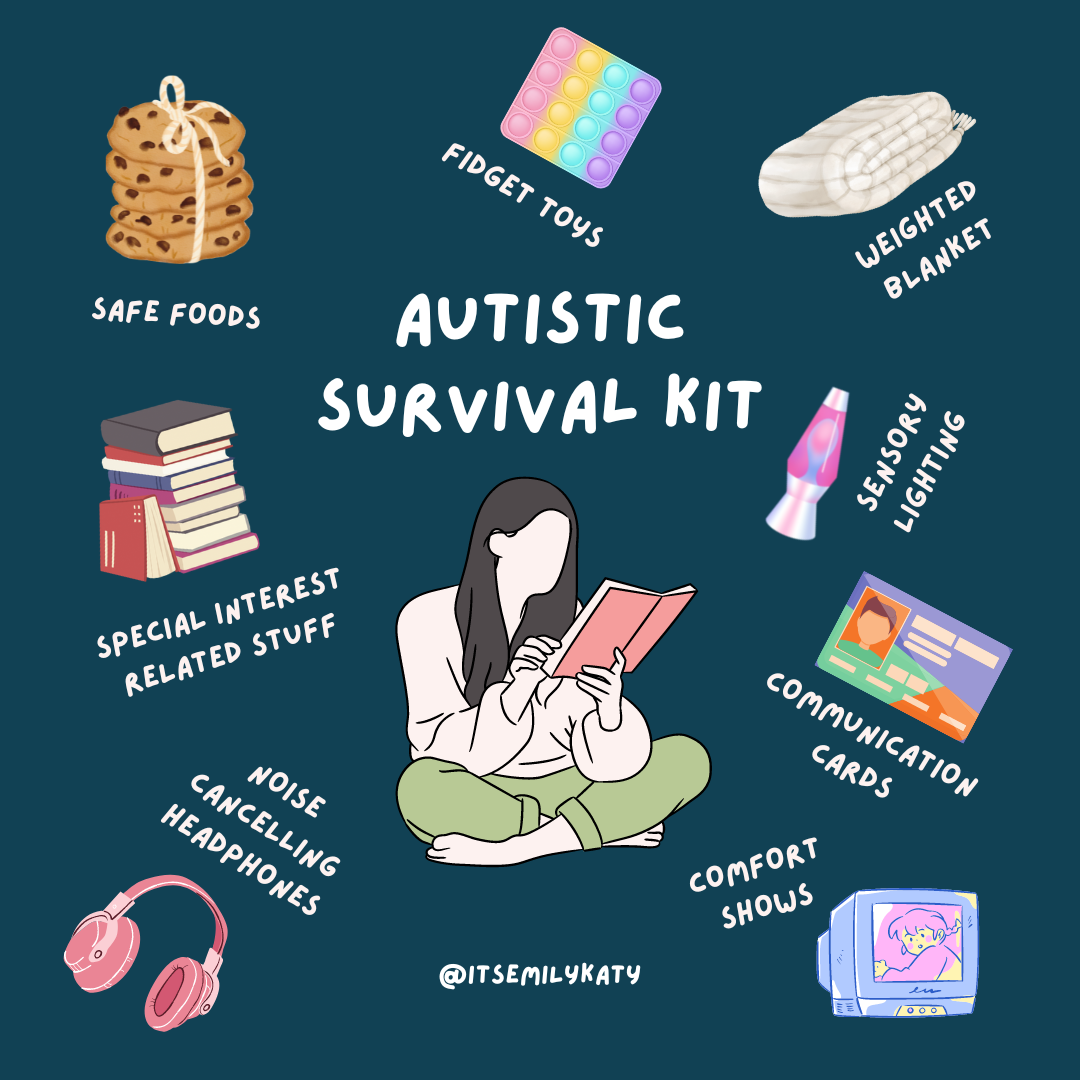My Autism Survival Kit
There are lots of things we like to have in every-day life, right? But as an autistic person, there are some things I really struggle without.
This is my autism survival kit.
Fidget Toys
Fidget toys are brilliant for anxiety or restlessness. Not only are they a distraction from my thoughts, but they can also help me to focus on a task or on what someone is saying (I also have ADHD!). I feel safer when I have one on me and quite panicked when I don’t. I keep them in my bags, all over my room and have a pop-it on my work lanyard (I work with kids, so it doesn’t stand out at all - not that it would matter if it did!).My day-to-day fidget toys are pop-its and tangles. You can get them in so many places other than those websites too, like Amazon, supermarkets and WHSmith.
Weighted Blanket
My answer to the question ‘if you were on a deserted island and could take 3 things…’ is without a doubt my weighted blanket. It has helped me sleep so much better at night, to calm down when I am upset, and to feel safe when I am anxious.
I have a Gravity Blanket that I got for Christmas a few years ago, which I love. Guidance recommends purchasing one that is 10% of your body weight, but mine is a bit more. There are many other brands available now too, with cheaper alternatives.Sensory Lighting
Being able to make my room feel like a sensory haven helps me regulate after work. I have LED strip lights around my room. I have a sunrise lamp on my bedside table that has lots of different colours and light settings. I have fairy lights on my walls too. I did have a lava lamp, but it made a buzzing noise that I did not like in the slightest, so I think it went to a charity shop.Communication Cards
Communication cards like these are great for autistic people who can find speech challenging. Or even those who find it hard to verbalise their needs, which can be quite common!Alert cards are also useful, in-case you are out in public and need help, or need to show someone that you are autistic. There are many different alert cards from organisations such as The National Autistic Society and The Girl With The Curly Hair, and local areas or police departments, such as Autism Anglia, Autism Hampshire, Thames Valley Police, Autism West Midlands, Met Police and Scottish Autism.
Comfort Shows
It goes without saying how comforting these can be! I was obsessed with the T.V show Friends for years. I would watch it for hours and hours every single day. Sometimes it was on all day. The familiarity of watching the same show over and over again is comforting when life feels so overwhelming and unpredictable.Noise Cancelling Headphones or Earplugs
I like to always have a pair of Loop Earplugs on me. There are lots of places and situations I wouldn’t manage in (like my boyfriend’s work leaving do last weekend which was a bar crawl - my worst nightmare!) without them. They mean I can do things I want to do, make travelling less stressful and being in the office at work easier!Special-Interest Related Stuff
Special interests are often autistic people’s escape when the world feels too much. Or, a way of navigating life using reference points from their interest and the predictability of being able to engage with it at certain points throughout their day. Without them, many of us would be lost, so they are such a core part of our survival kits.Safe Foods
Going to new places can be exciting (depending on the place…), but I feel stressed if I don’t have something to eat on me which I know I like and can access easily. I tend to always have a cereal bar in my hand-bag. I like Naked bars. Or the Jordans Frusli ones. If I’m going away, I need to make sure I have cereal I like (because I always have cereal in the mornings!) and fruit juice to take my medication with. Safe foods are very important to a lot of autistic people, because the stress of eating different foods with unpredictable textures or flavours can be overwhelming sensory-wise!
What would you have in your autism survival kit, if you are autistic? Or in your general survival kit if you aren’t?
